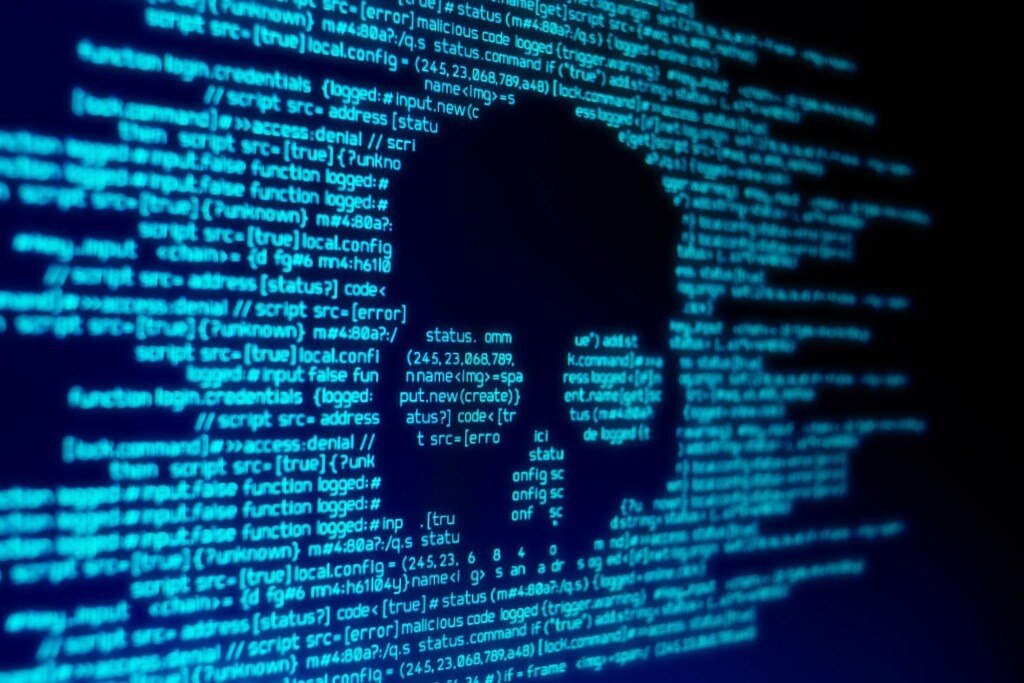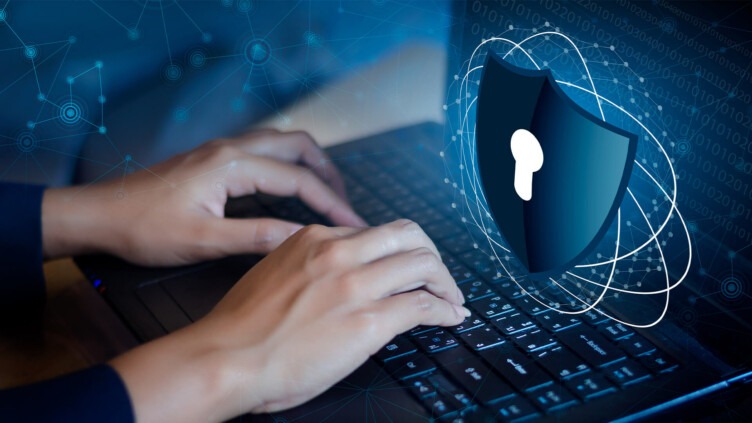Cybersecurity and Cybersafety for Charitable Organizations
By SCARS Editorial Team – Society of Citizens Against Relationship Scams Inc.
The Importance of Cybersecurity and Cybersafety for Charitable Organizations
Charitable organizations are increasingly at risk of cyberattacks. These attacks can have a devastating impact on charities, both financially and reputationally. In some cases, cyberattacks can even force charities to close their doors.
There are a number of reasons why Charitable organizations are attractive targets for cyber attackers. First, charities often have access to sensitive data, such as donor information, financial records, and personal information about clients. This data can be valuable to cyber attackers, who may use it to commit fraud or identity theft.
Second, Charitable organizations often have limited resources to invest in cybersecurity. This makes it more difficult for them to defend themselves against cyberattacks.
Third, Charitable organizations are often seen as easy targets. Cyber attackers may believe that charities are less likely to report attacks or that they will be more willing to pay a ransom.
The Impact of Cyberattacks on Charitable Organizations
Cyberattacks can have a number of negative impacts on Charitable organizations, including:
- Financial losses: Cyberattacks can lead to direct financial losses, such as the cost of ransoms, the cost of recovering from data breaches, and the cost of investigating and responding to attacks.
- Damage to reputation: Cyberattacks can damage a charity’s reputation, making it more difficult to attract donors and volunteers.
- Loss of data: Cyberattacks can lead to the loss of sensitive data, such as donor information, financial records, and personal information about clients. This data can be valuable to cyber attackers, who may use it to commit fraud or identity theft.
- Disruption to operations: Cyberattacks can disrupt a Charitable organizations’s operations, making it difficult for them to provide services to their clients.
The Importance of Mitigation and Recovery Plans
It is important for Charitable organizations to have mitigation and recovery plans in place to protect themselves from cyberattacks. Mitigation plans help charities to prevent cyberattacks from happening in the first place. Recovery plans help charities to respond to cyberattacks and to recover from them as quickly as possible.
Here are some tips for developing mitigation and recovery plans:
- Conduct a risk assessment: The first step in developing a cybersecurity mitigation and recovery plan is to conduct a risk assessment. This will help you to identify your charity’s most valuable assets and the threats that they face.
- Implement security controls: Once you have identified your risks, you can implement security controls to mitigate them. Some common security controls include firewalls, intrusion detection systems, and antivirus software.
- Educate your staff: It is important for Charitable organizations to educate their staff about cybersecurity best practices. This includes training them on how to identify and avoid phishing emails, how to create strong passwords, and how to keep their devices secure.
- Back up your data: It is important to back up your data regularly in case of a cyberattack. This will help you to recover your data quickly and minimize the disruption to your operations.
- Have a recovery plan in place: Your recovery plan should outline the steps that you will take to respond to a cyberattack and to recover from it. This plan should include steps for notifying affected individuals, restoring your data, and investigating the attack.
Conclusion
Cybersecurity and cybersafety are essential for charitable organizations. By implementing strong security measures and having mitigation and recovery plans in place, charities can protect themselves from cyberattacks and minimize the impact of attacks that do occur.
Here are some additional tips for charities to stay safe online:
- Use strong passwords and multi-factor authentication.
- Be careful about what information you share online.
- Keep your software up to date.
- Be wary of phishing emails and other scams.
- Report any suspicious activity to your IT department or to the authorities.
By following these tips, Charitable organizations can help to protect themselves from cyberattacks and continue to provide important services to their communities.
SCARS Resources:
- For New Victims of Relationship Scams newvictim.AgainstScams.org
- Subscribe to SCARS Newsletter newsletter.againstscams.org
- Sign up for SCARS professional support & recovery groups, visit support.AgainstScams.org
- Find competent trauma counselors or therapists, visit counseling.AgainstScams.org
- Become a SCARS Member and get free counseling benefits, visit membership.AgainstScams.org
- Report each and every crime, learn how to at reporting.AgainstScams.org
- Learn more about Scams & Scammers at RomanceScamsNOW.com and ScamsNOW.com
- Global Cyber Alliance ACT Cybersecurity Tool Website: Actionable Cybersecurity Tools (ACT) (globalcyberalliance.org)
- Self-Help Books for Scam Victims are at shop.AgainstScams.org
- Donate to SCARS and help us help others at donate.AgainstScams.org
- Worldwide Crisis Hotlines: International Suicide Hotlines – OpenCounseling : OpenCounseling
- Campaign To End Scam Victim Blaming – 2024 (scamsnow.com)
More ScamsNOW.com Articles
-/ 30 /-
What do you think about this?
Please share your thoughts in a comment below!
SCARS LINKS: AgainstScams.org RomanceScamsNOW.com ContraEstafas.org ScammerPhotos.com Anyscam.com ScamsNOW.com
reporting.AgainstScams.org support.AgainstScams.org membership.AgainstScams.org donate.AgainstScams.org shop.AgainstScams.org
youtube.AgainstScams.org linkedin.AgainstScams.org facebook.AgainstScams.org
Important Information for New Scam Victims
- Please visit www.ScamVictimsSupport.org – a SCARS Website for New Scam Victims & Sextortion Victims.
- SCARS Institute now offers its free, safe, and private Scam Survivor’s Support Community at www.SCARScommunity.org – this is not on a social media platform, it is our own safe & secure platform created by the SCARS Institute especially for scam victims & survivors.
- SCARS Institute now offers a free recovery learning program at www.SCARSeducation.org.
- Please visit www.ScamPsychology.org – to more fully understand the psychological concepts involved in scams and scam victim recovery.
If you are looking for local trauma counselors, please visit counseling.AgainstScams.org
If you need to speak with someone now, you can dial 988 or find phone numbers for crisis hotlines all around the world here: www.opencounseling.com/suicide-hotlines
Statement About Victim Blaming
Some of our articles discuss various aspects of victims. This is both about better understanding victims (the science of victimology) and their behaviors and psychology. This helps us to educate victims/survivors about why these crimes happened and not to blame themselves, better develop recovery programs, and help victims avoid scams in the future. At times, this may sound like blaming the victim, but it does not blame scam victims; we are simply explaining the hows and whys of the experience victims have.
These articles, about the Psychology of Scams or Victim Psychology – meaning that all humans have psychological or cognitive characteristics in common that can either be exploited or work against us – help us all to understand the unique challenges victims face before, during, and after scams, fraud, or cybercrimes. These sometimes talk about some of the vulnerabilities the scammers exploit. Victims rarely have control of them or are even aware of them, until something like a scam happens, and then they can learn how their mind works and how to overcome these mechanisms.
Articles like these help victims and others understand these processes and how to help prevent them from being exploited again or to help them recover more easily by understanding their post-scam behaviors. Learn more about the Psychology of Scams at www.ScamPsychology.org
SCARS INSTITUTE RESOURCES:
If You Have Been Victimized By A Scam Or Cybercrime
♦ If you are a victim of scams, go to www.ScamVictimsSupport.org for real knowledge and help
♦ SCARS Institute now offers its free, safe, and private Scam Survivor’s Support Community at www.SCARScommunity.org/register – this is not on a social media platform, it is our own safe & secure platform created by the SCARS Institute especially for scam victims & survivors.
♦ Enroll in SCARS Scam Survivor’s School now at www.SCARSeducation.org
♦ To report criminals, visit https://reporting.AgainstScams.org – we will NEVER give your data to money recovery companies like some do!
♦ Follow us and find our podcasts, webinars, and helpful videos on YouTube: https://www.youtube.com/@RomancescamsNowcom
♦ Learn about the Psychology of Scams at www.ScamPsychology.org
♦ Dig deeper into the reality of scams, fraud, and cybercrime at www.ScamsNOW.com and www.RomanceScamsNOW.com
♦ Scam Survivor’s Stories: www.ScamSurvivorStories.org
♦ For Scam Victim Advocates visit www.ScamVictimsAdvocates.org
♦ See more scammer photos on www.ScammerPhotos.com
You can also find the SCARS Institute’s knowledge and information on Facebook, Instagram, X, LinkedIn, and TruthSocial
Psychology Disclaimer:
All articles about psychology and the human brain on this website are for information & education only
The information provided in this and other SCARS articles are intended for educational and self-help purposes only and should not be construed as a substitute for professional therapy or counseling.
Note about Mindfulness: Mindfulness practices have the potential to create psychological distress for some individuals. Please consult a mental health professional or experienced meditation instructor for guidance should you encounter difficulties.
While any self-help techniques outlined herein may be beneficial for scam victims seeking to recover from their experience and move towards recovery, it is important to consult with a qualified mental health professional before initiating any course of action. Each individual’s experience and needs are unique, and what works for one person may not be suitable for another.
Additionally, any approach may not be appropriate for individuals with certain pre-existing mental health conditions or trauma histories. It is advisable to seek guidance from a licensed therapist or counselor who can provide personalized support, guidance, and treatment tailored to your specific needs.
If you are experiencing significant distress or emotional difficulties related to a scam or other traumatic event, please consult your doctor or mental health provider for appropriate care and support.
Also read our SCARS Institute Statement about Professional Care for Scam Victims – click here
If you are in crisis, feeling desperate, or in despair, please call 988 or your local crisis hotline – international numbers here.
More ScamsNOW.com Articles
A Question of Trust
At the SCARS Institute, we invite you to do your own research on the topics we speak about and publish. Our team investigates the subject being discussed, especially when it comes to understanding the scam victims-survivors’ experience. You can do Google searches, but in many cases, you will have to wade through scientific papers and studies. However, remember that biases and perspectives matter and influence the outcome. Regardless, we encourage you to explore these topics as thoroughly as you can for your own awareness.

























![NavyLogo@4x-81[1] Cybersecurity and Cybersafety for Charitable Organizations 2023](https://scamsnow.com/wp-content/uploads/2025/04/NavyLogo@4x-811.png)
![scars-institute[1] Cybersecurity and Cybersafety for Charitable Organizations 2023](https://scamsnow.com/wp-content/uploads/2025/04/scars-institute1.png)

![niprc1.png1_-150×1501-1[1] Cybersecurity and Cybersafety for Charitable Organizations 2023](https://scamsnow.com/wp-content/uploads/2025/04/niprc1.png1_-150x1501-11.webp)